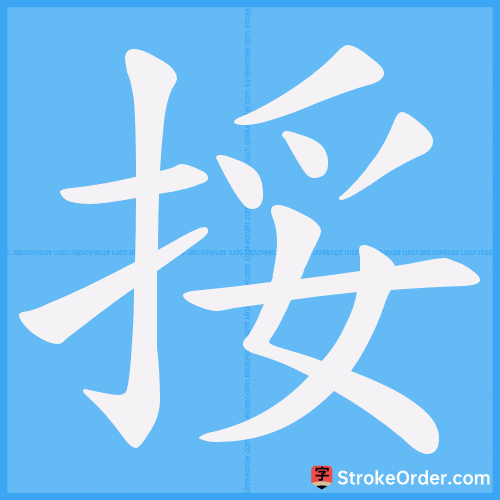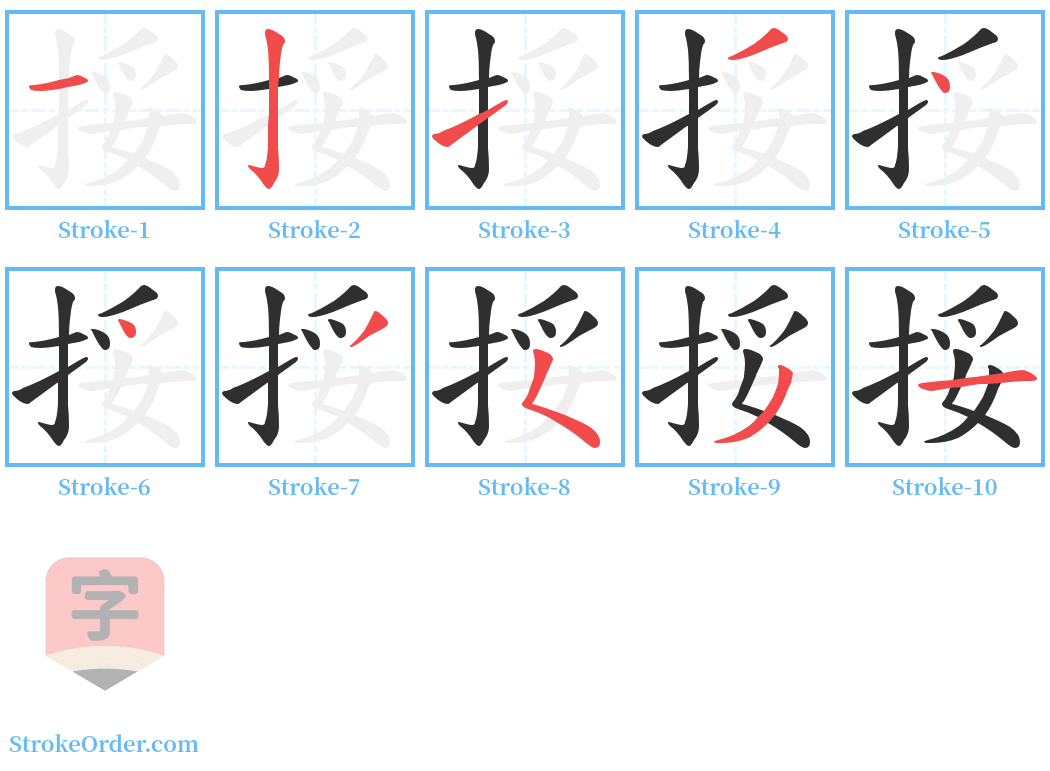挼 Stroke Order
Animated Stroke Order of 挼

Stroke Order Diagrams for 挼

Information of 挼
Pinyin
ruó
Radical
扌
Strokes
10 strokes
Usage
★★
Definition
挼 [ruó]
1. **Rub**: To rub or knead. Example: 两手自相挼 (Both hands rub against each other).
2. **Wrinkle/Shrink**: To crumple or become wrinkled. Example: 那条纸挼了 (That piece of paper became wrinkled).
Related meanings:
1. 排挤 [squeeze out].
2. 揉搓 [rub].
引申 Meaning:
1. 《说文》: 挼,摧也。段玉裁注: “摧,各本作推,今依《玉篇》、《韵会》…正。摧者,挤也。” (In the "Shuowen," it states that 挼 means to crush. The explanation notes that it relates to squeezing.)
2. 唐·韩愈《读东方朔杂事》: 瞻相北斗柄,两手自相挼 (In the poem by Han Yu, looking at the handle of the Big Dipper, both hands rub against each other).
- Verb: To knead or rub. Example: 两手自相挼 (Both hands rub against each other); 蓦然揭起鸳帏,星眼倦还挼 (In the Qing poem, suddenly uncovering a curtain, the starry eyes grow weary and rub again).
- Verb: To play with or toy with. Example: 不胜情,手挼裙带遶花行 (In a Five Dynasties song, unable to resist the feelings, the hands play with the skirt while wandering among the flowers).
Further meanings:
1. (Paper, cloth, etc.) Wrinkled; not flat.
2. (Cloth) About to wear out.
Example Sentences:
1. 这张纸挼了 (This piece of paper is wrinkled).
2. 衬衫穿了几年,都挼了 (The shirt has been worn for several years and is about to wear out).
Noun: A sacrificial rite before the body is consumed.
Example: 《仪礼.特牲馈食礼》: 祝命挼祭 (In the "Rites," it mentions the sacrificial offering before the deity’s consumption).汉.郑玄.注: “挼祭,祭神食也” (The explanation notes that 挼祭 refers to the offerings made to the gods).